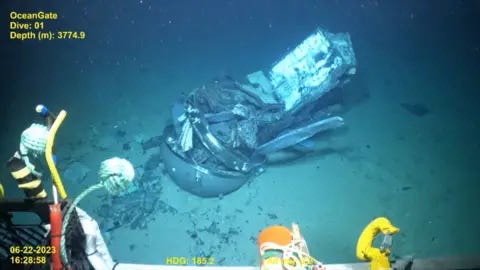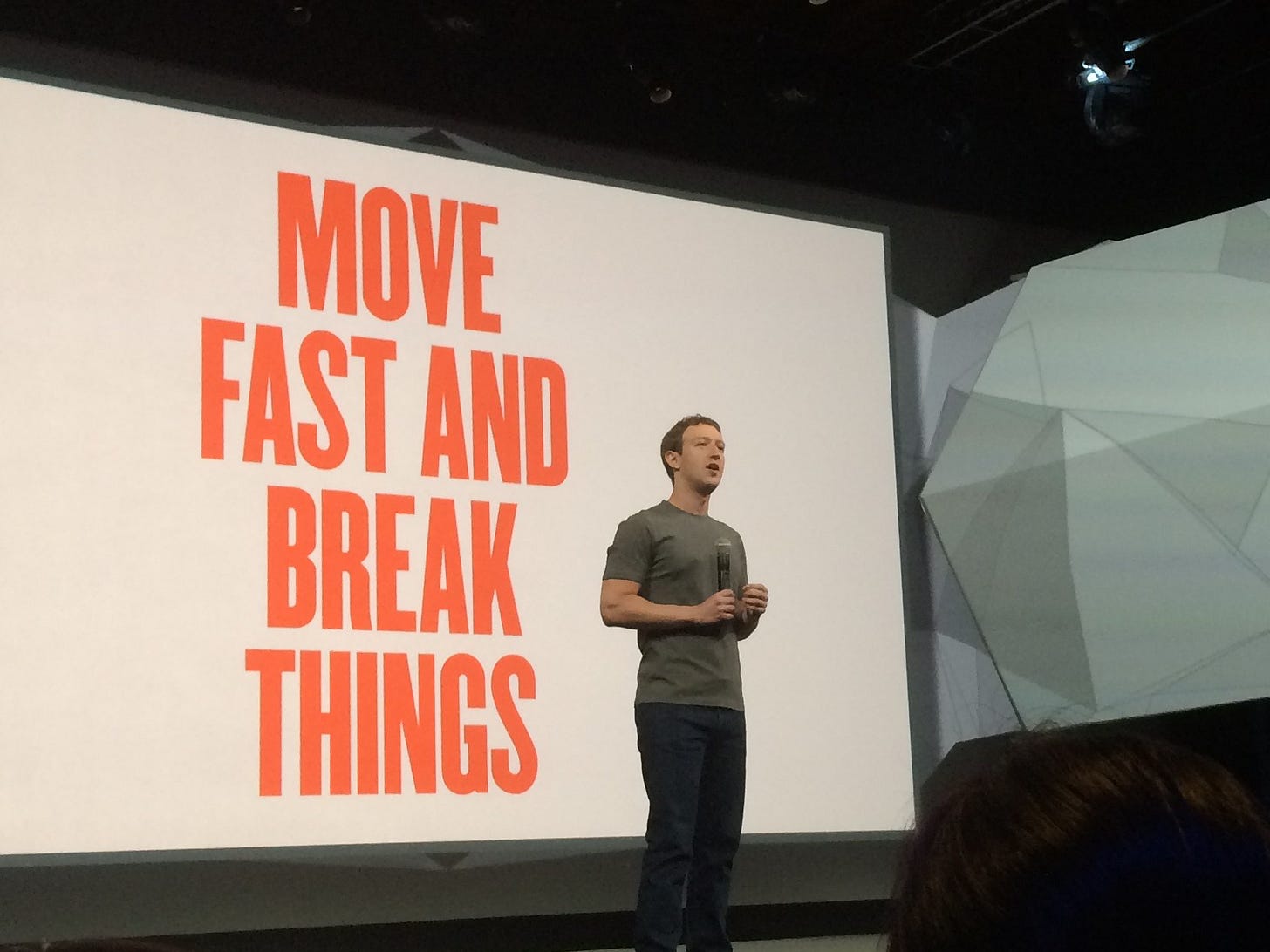Moving Thoughtfully and Not Breaking Things
Stepping Back from the Need to Move Fast at All Costs
This week I’ve been thinking a lot about 2 stories that have been in the news.
The first is the Titan submersible hearings, where many of the problems with the Titan have come to light.
The US Coast Guard has been holding hearings and listening to testimony about the Titan submersible, which imploded last June on its way to the Titanic, killing the five people on board.
Most of the testimony has been pretty damning of the company and Titan. From the materials used in construction to the way the submersible was tested and maintained.
According to the BBC,
Patrick Lahey, the co-founder and chief executive of leading submersible manufacturer Triton, told investigators he wasn't impressed by the Titan submersible…
He toured the Titan sub that later imploded while on vacation in the Bahamas and said he "wasn't particularly impressed" by what he saw.
"It looked to me like a lot of the stuff was not quite ready for primetime," he added, saying he expressed his concerns to OceanGate.
Mr Lahey added that the vessel did not seem "particular well thought out".
"It just looked amateur-ish in its execution," he said.
The Titan was not ready for prime time. It was potentially a good prototype, but not a vessel you take people to the bottom of the ocean in.
Tony Nissen, the former director of engineering at OceanGate, the company that operated Titan, testified that Stockton Rush, the CEO, was too often focused on keeping costs low and meeting deadlines rather than the quality of the product they were producing.

 Tiktok failed to load.
Tiktok failed to load.Enable 3rd party cookies or use another browser
When you are focused on keeping costs low and moving quickly, you have to cut corners on quality and/or features. There is simply no other way to build something without making that tradeoff.
In the case of the Titan, it was catastrophic and killed people.
Move Fast and Break Things Revisited?
Mark Zuckerberg famously called for Facebook employees, and specifically the engineers, to move fast and break things.
In the early days of Facebook, the attitude was that if you weren’t breaking things, you weren’t moving fast enough.
This attitude got adopted through most of the tech world and beyond. Everyone wanted to move fast and break things. The faster the better.
Until we all realized that moving fast and breaking things is generally a bad idea. Even Facebook slowly walked back this motto several times to things like “move fast with stable infrastructure” and then to “move fast.”
Which is why I was actually impressed to see Orion launched this week by Meta.





